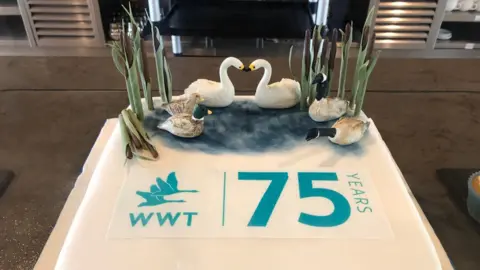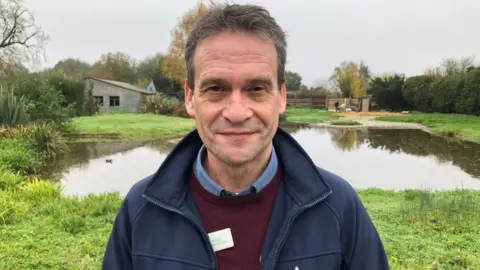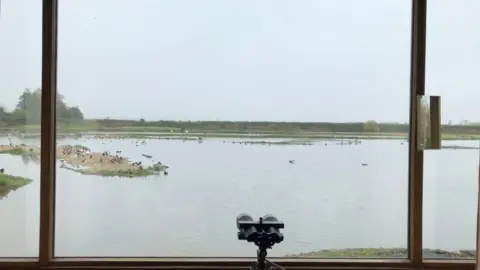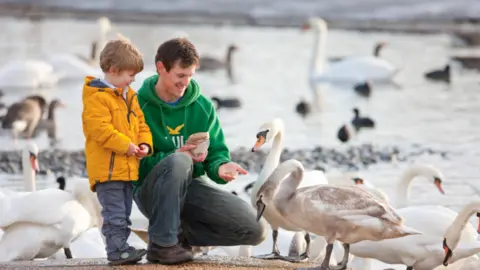Slimbridge: WWT marks 75 years of saving species from extinction
 BBC
BBCA charity set up to save threatened wetland species from extinction and conserve their habitats is celebrating 75 years of service.
Sir Peter Scott founded the Wildfowl and Wetlands Trust (WWT) on the banks of the River Severn in 1946 with a site in Slimbridge, Gloucestershire.
Now it has 10 sites across the UK helping to protect hundreds of species around the world.
The trust aims to create 100,000 more acres of wetlands to mark the occasion.
Allowing the public to get close to nature both in person and through the BBC's first natural history programme aired from the site at Slimbridge was a new concept when it first opened.
One of the trust's biggest successes over the years was breeding the nene Hawaiian geese to bring the species back from the brink of extinction.
Sir Peter passed away in 1989 but his passion for nature lives on through the work of the trust.

WWT chief operating officer Kevin Peberdy, said: "He realised - ahead of his time - that our wealth, our health and our emotional wellbeing all depend on the natural world.
"He appreciated that showing people how amazing wetland nature is can ignite a passion to preserve it."
Around 15 million birds migrate to WWT sites across the UK every winter.
One of the newest additions to the trust, created in 2011, is Steart Marshes in Somerset, consisting of hundreds of hectares of salt marsh and freshwater wetlands.
It was built to buffer homes and businesses from rising sea levels and provide habitat for a rich mix of wetland wildlife.

The number of species cared for has also increased, with the largest and rarest of the pelican species Dalmatian pelican now calling Arundel Wetlands Centre home.
"When we look back, we realise what an enormous amount we have achieved," said Mr Peberdy.
To mark the 75 year milestone the trust aims to inspire one million people to spread the word about the benefits of wetlands as well as create 100,000 hectares of wetlands across the UK.
As part of its commitment to conservation, the charity is also calling for a "blue recovery", introducing policies to protect the planet, including strategies to reach net zero carbon emissions by 2050.
 WWT
WWTFollow BBC West on Facebook, Twitter and Instagram. Send your story ideas to: [email protected]
